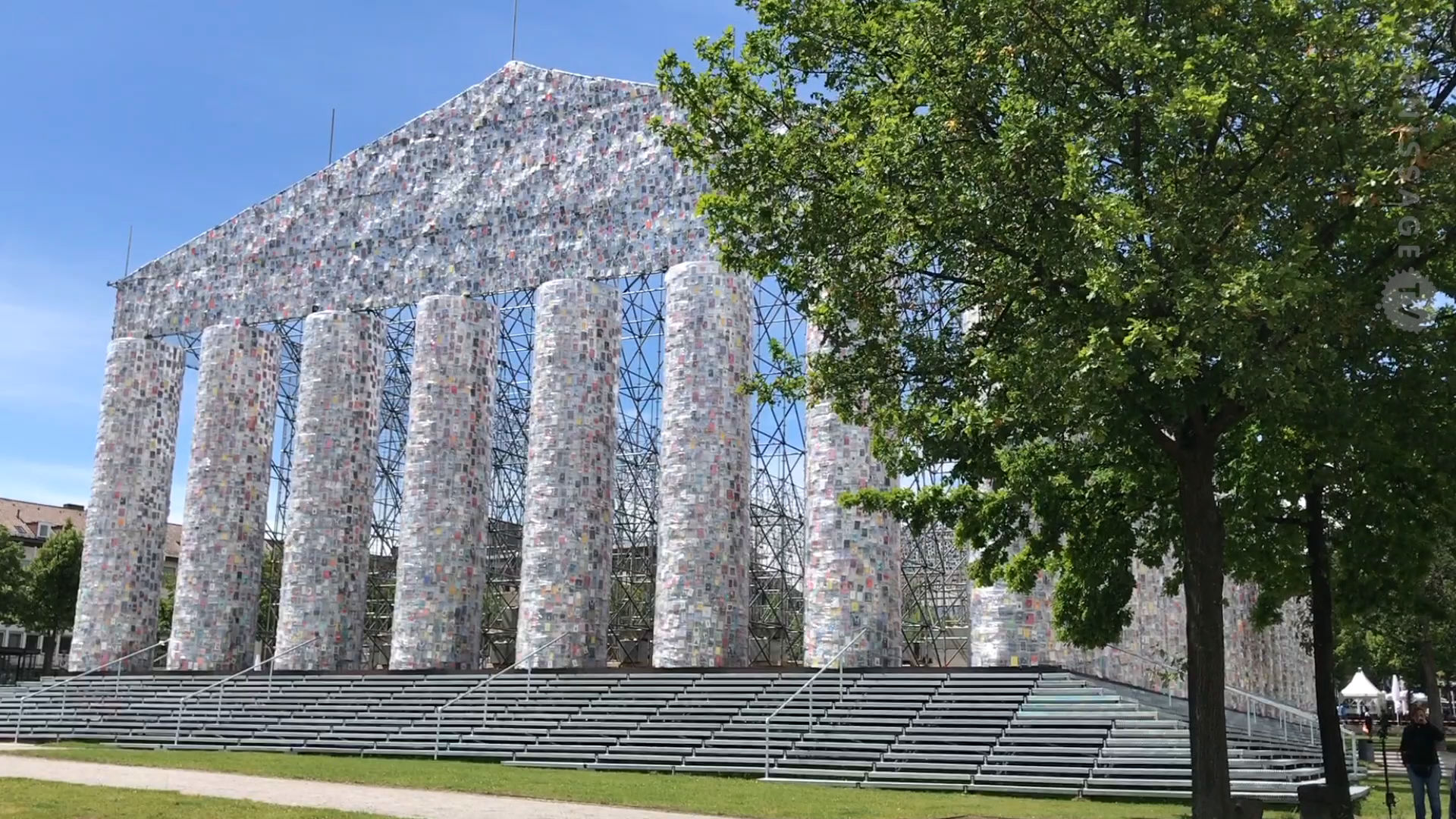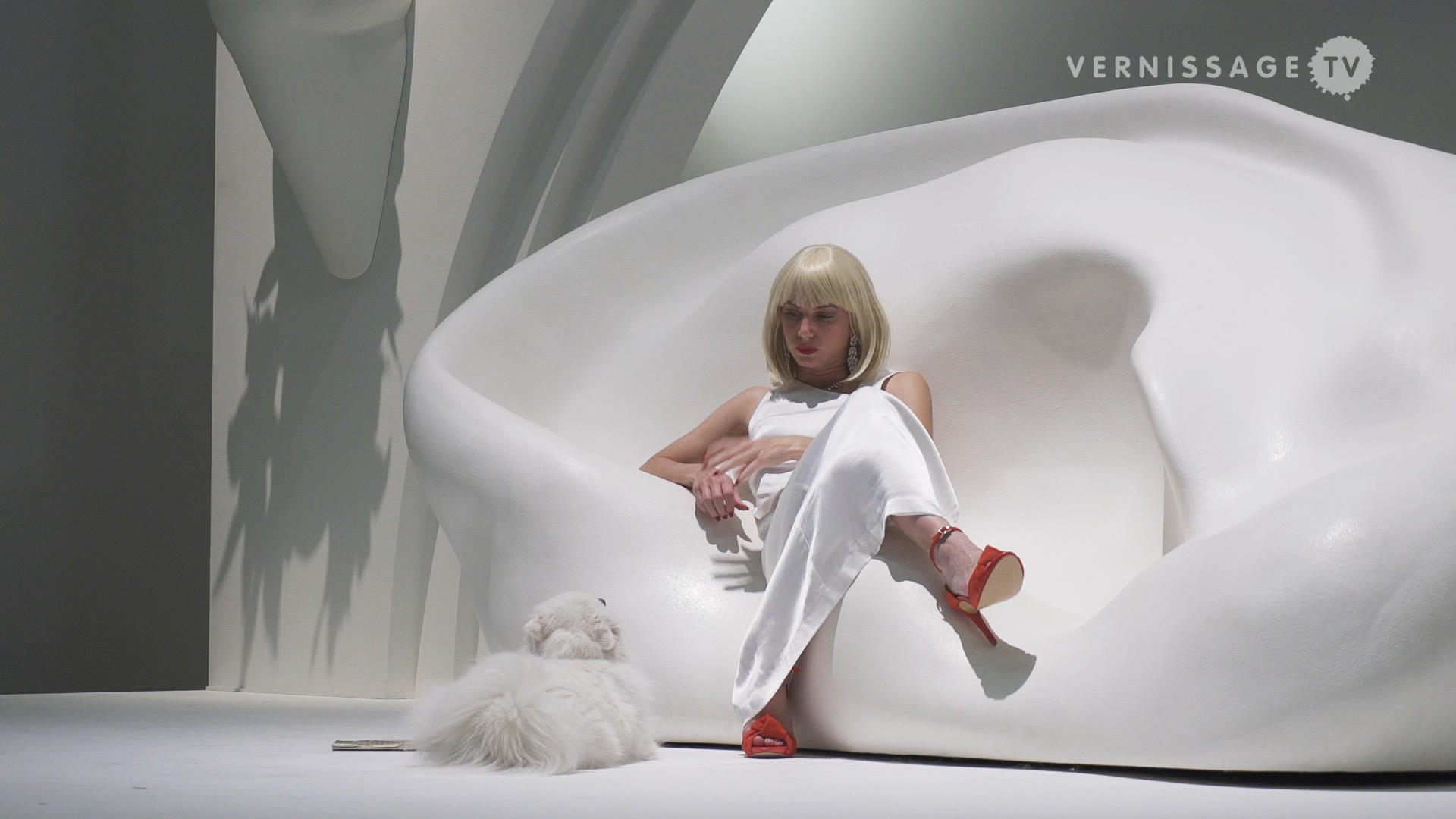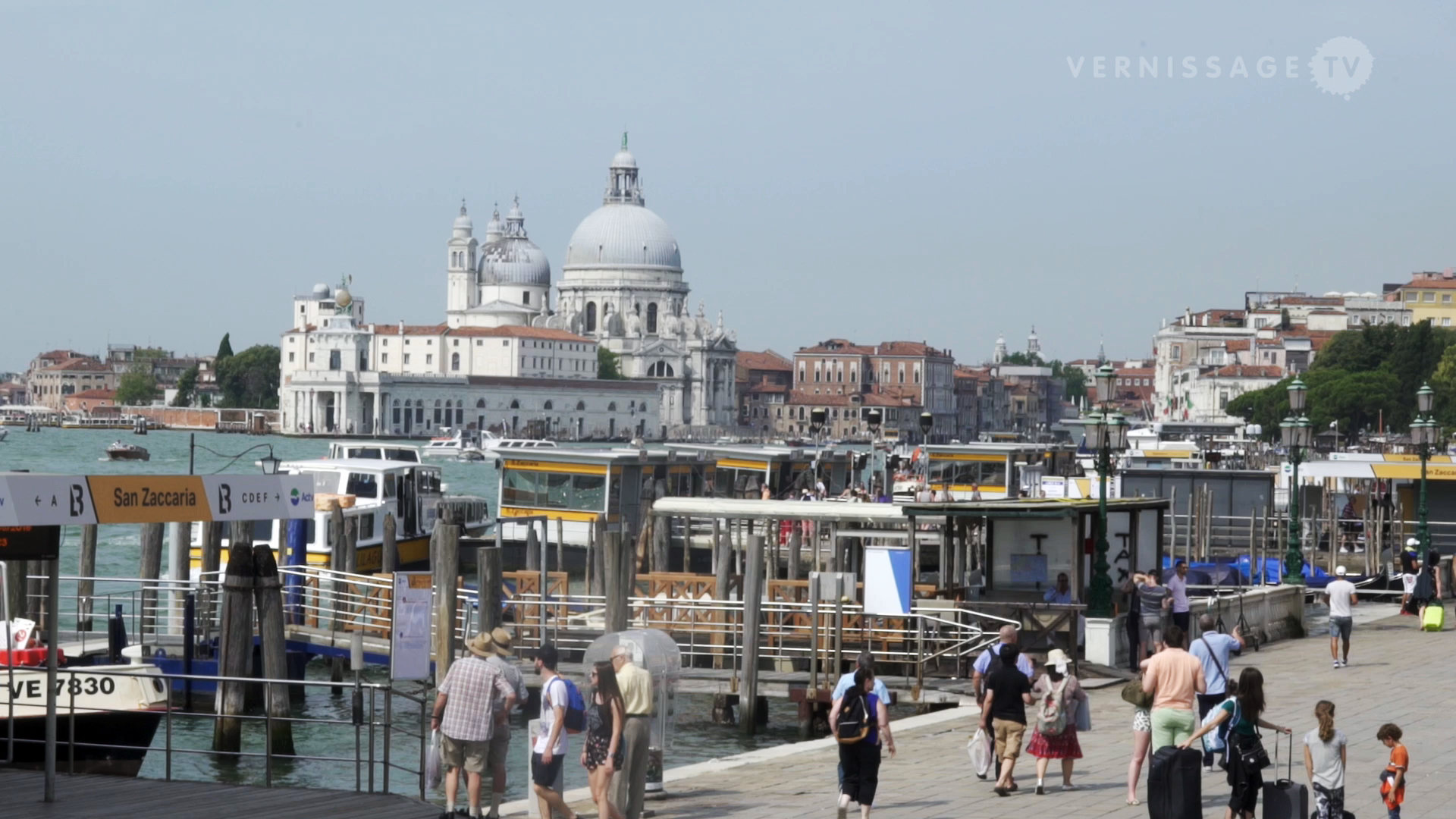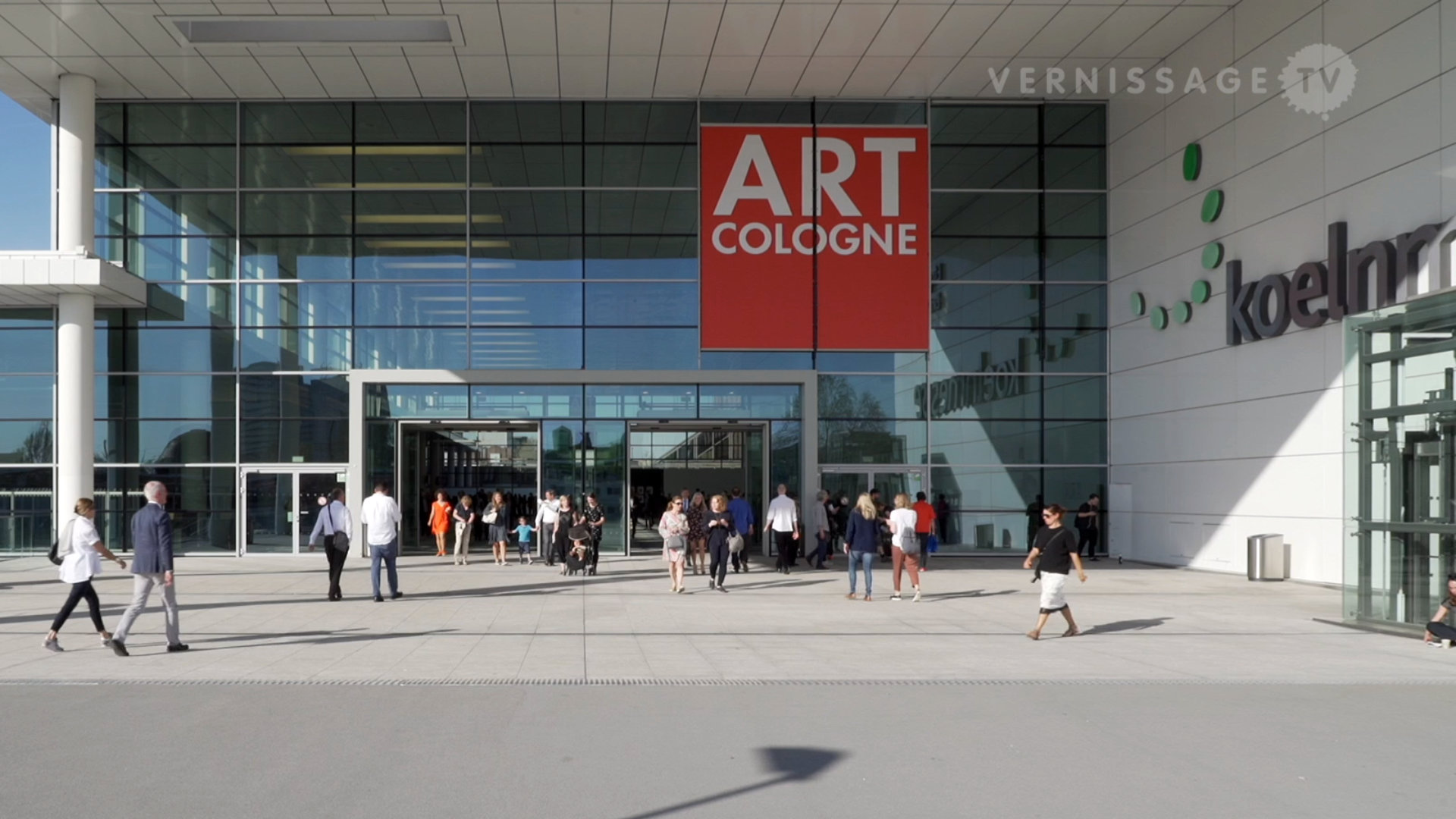At Art Cologne 2017, the gallery LambdaLambdaLambda (Prishtina, Kosovo), presents a solo exhibition with the artist Flaka Haliti. LambdaLambdaLambda was founded by Isabella Ritter and Katharina Schendl in October 2014. In this video, Katharina Schendl provides us with a short introduction to the artist Flaka Haliti and the works on display at Art Cologne, and the gallery.
Flaka Haliti at LambdaLambdaLambda at Art Cologne 2017. Cologne (Germany), April 27, 2017.
> Right-click (Mac: ctrl-click) this link to download Quicktime video file.
Info text:
At Art Cologne we are presenting three different bodies of works by Flaka Haliti (*1982, Kosovo). Flaka Haliti studied at Städelschule in Frankfurt. She was representing Kosovo at the Venice Biennale in 2015 with an installation titled „Speculating on the Blue“, where skeletons of barrier-like objects were occupying the space, referring to the aesthetics of the concrete walls that have been erected between nations and regions as a materialization of conflict. Haliti’s installation aimed at de-militarizing and de-contextualizing this specific aesthetic regime by stripping the columns down to their material essence and juxtaposing them with elements that are by nature resistant to the concept of borders thus opening up new horizons for a methaphorical reading.
In 2016 she reveived the Ars Viva Preis. Her practice evolves around questions of meaning of borders, democracy, freedom and mobility and the de-construction of the “colonial object”.
„I See a Face. Do You See a Face.“
„I See a Face. Do You See a Face.“ is a photo series with ten cloud motifs in which faces have been drawn by computer. The title of this work asks a question that is also written as a statement of fact. The faces inscribed in the clouds invoke something involuntarily familiar within the unfamiliarIn this deliberate dissolution of all clear relationships and ascription, Flaka Haliti emphasizes her interest in initiating games between reality and fiction, and imaginary proximity and spatial distance.
„Daniel“ and „Anna“
These two sculptures belong to a bigger body of work that was conceived after the Venice Biennale for the exhibition „Political Populism“ at Kunsthalle Wien. Each sculpture consists of a rebar-structure based on kids self-portraits, blue sand and a yellow IKEA bag.
The self-portraits were originally made by a class of children studying in an international school in Abidjan. Connecting to a narrative of innocence and youth, the figures—in their generic simplicity—also produce a sense of anonymity and loneliness. The fact that the drawings are appropriated from a community of expatriate children emphasises the notion of cultural and geographical dis-placement.
The blue sand stems from Haliti’s installation in the Venice Biennale that can be read as a metaphor for a horizon rendering hope.
The yellow IKEA bags allude to the fact that displaced people (often refugees) are carrying all their belongings in a bag. Together the interaction of the yellow and blue alludes to the flag of the European Union, which has become for many refugees a place for hope and finding a better life.
“Joe”
The third body of work that is presented at Art Cologne is titled “Joe”.
Joe is a fictional character that Flaka Haliti developed in 2015. Conceived as a quasi cartoon-series, Joe is a long-term project and will hence appear from time to time, here and there. Totally unexpected he will manifest himself whenever it pleases him. Joe is flexible, fluid and fast. The project is conceived as an endless game that Joe likes to play with Flaka or Flaka with Joe, respectively.
Joe will always be different in his appearance and will only pop up once in a certain shape or color or material, however always under the title “Is it you, Joe?”. Joe could also be a ghost, if so, certainly a funny one. Each series of Joe will be unique as Joe never likes to repeat himself. Joe can take any form he wants. When Joe wants to appear he will do so and also disappear as quickly as he appeared.
In a self-ironical manner Joe also intends to respond to the frame¬work of a rather fast capitalistic system wherein artists find themselves, constantly in the loop of working fast and now, following the market’s request to come up with a new product constantly. Based on this Joe has the ability of acting as a self-critical commodity. Joe is supposed to be a vehicle to simultaneously embrace this system and master it, either for Flaka or Joe himself. As such Joe plays Flaka’s counterpart in her artistic production.
Flaka Haliti (born in 1982, Prishtina) lives in Munich. Haliti studied at the University of Prishtina and Städelschule, Frankfurt/M, and is currently working toward her PhD at the Academy of Fine Arts, Vienna. Her artistic practice is based on conceptual ideas and relates in its critical analyses of media and society to her distinctly European perspective. Haliti’s work was present¬ed at venues including Mumok, Vienna; Kunsthalle Wien, Vienna; 6th Moscow Biennial, Moscow; Galerie für Zeitgenössische Kunst, Leipzig; Kosovo Art Gallery, Prishtina; ZKM, Karlsruhe; Haus der Kulturen der Welt, Berlin; and Portikus, Frankfurt/Main. In 2016, she represented Kosovo at the 56th Venice Biennale.




